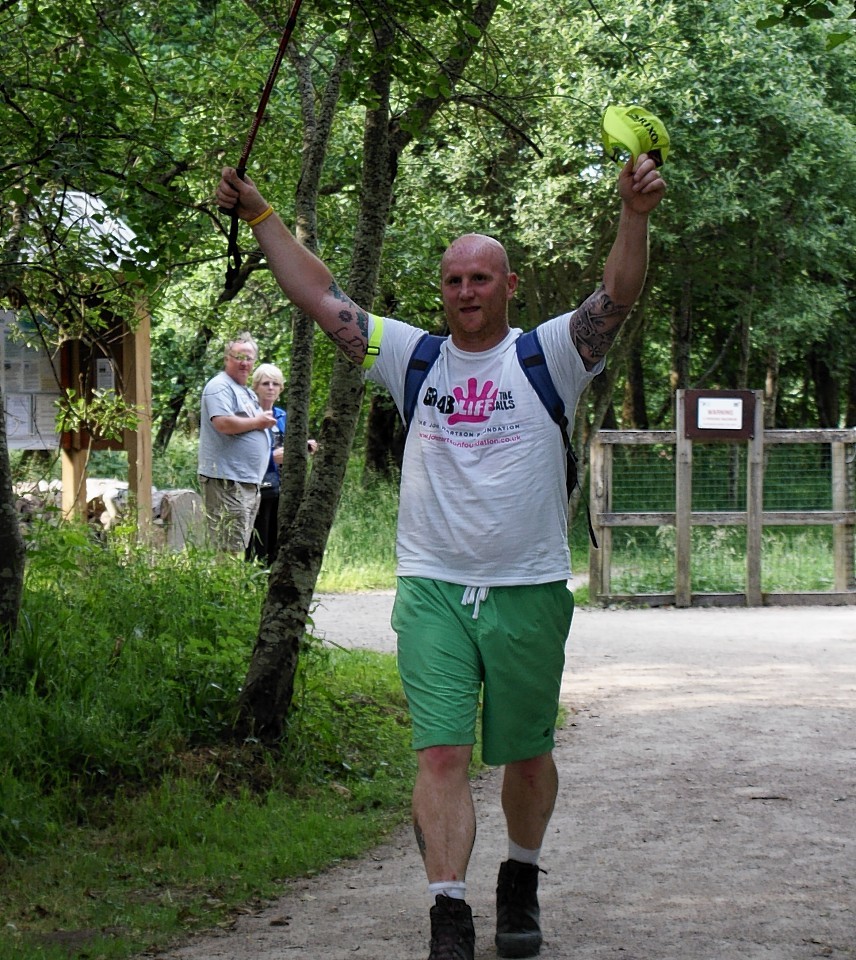Workers on site of the new Inverness Royal Academy received a visit recently from a charity aiming to increase awareness of the signs and symptoms of testicular cancer.
Construction staff at the project welcomed representatives from the John Hartson Foundation as part of the charity’s ‘Grab Life by the Balls’ education campaign.
A team of over 80 was shown a video featuring John Hartson sharing his own experience of testicular cancer and received advice and guidance on how men can check for early signs of the illness.
The John Hartson Foundation was established in 2010 as the former top-flight professional footballer was receiving his own treatment for cancer and is his own way of saying thank you to the medical staff who worked tirelessly to save his life.
With the high percentage of male staff currently working at the facility’s build, which is being delivered by hub North Scotland in partnership with Morrison Construction, the link-up in Inverness is one of a number of visits the charity’s team is currently making throughout the country.
As part of the visit, hub North Scotland has donated £500 and Morrison Construction has handed over £1,000 to the cause, with the funds going directly towards the charity’s provision of facilities and support services to those affected by testicular cancer.
Jill Adie, business development manager at hub North Scotland, said: “We were delighted to welcome the team from the John Hartson Foundation to the Inverness site for what was an informative and incredibly eye-opening session. Our donation to the charity is a token of our appreciation for them taking the time to visit and share John’s story.”
Sally Cooper, CSR manager at Morrison Construction, said: “It’s important to raise awareness of male cancer, particularly testicular cancer, as I don’t think people speak as openly about it as other cancers. These regular health and well-being sessions with our people and supply chain about the importance of looking after ourselves, not just while at work, but all the time, is an excellent way of making our workforce aware of symptoms, and therefore could save lives.”
